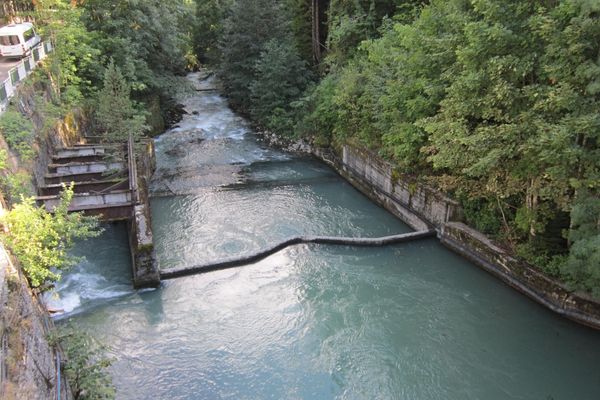
Deadline: 10-Apr-23
The Water Research Foundation (WRF) is seeking proposals for Developing an Environmental, Social, and Governance Framework for Water Utilities Project.
This project is funded by The Water Research Foundation (WRF) as part of WRF’s Emerging Opportunities Program.
Project Objectives
- To develop a water-sector-specific environmental, social, and governance (ESG) framework, and address related topics
- To prepare a user-friendly ESG framework report with synthesis of case studies for water utilities
Research Approach
The research approach in this project includes five components as follows.
- Task 1: The research team will synthesize key elements of ESG frameworks as applicable to the water sector and document methods for tracking utility performance. This includes consideration of the interconnections of the role of water in human and environmental health. The summary will include how utilities use data to support water infrastructure investment, climate mitigation and adaptation, water supply security, the water-energy nexus, water data and intelligent water systems, and the value of water in existing ESG frameworks available in the U.S. and internationally. The summary will include a comparison of available performance tracking systems (e.g., AWWA Utility Benchmarking Performance Indicators, Sustainability Accounting Standard for Water Utilities and Services issued by Sustainability Accounting Standards Board [SASB], and those listed in references or from literature) and how ESG can be incorporated.
- Task 2: The research team will adapt existing ESG methods, metrics, and reporting for the water utility sector. Drivers for using ESG vary, and the metrics will address the goals that may be identified, such as customer service or financial ranking for large water companies. Common financial sector frameworks may be adapted, such as the Global Reporting Initiative, the Principles for Responsible Investment, the EU Taxonomy for Sustainable Activities, and the SASB’s Sustainability Accounting Standard. In addition, the research team will explore how to customize relevant elements of frameworks in the context of different water utility types (public and private) and sizes, based on analysis of key attributes and elements of ESG frameworks and implementation, along with public availability of data. In addition, the research team will consider connecting and adapting UN Sustainable Development Goals (SDGs), which include certain water specific metrics, in the ESG framework.
- Task 3: The research team will conduct an invitation-only virtual workshop with partner utilities and organizations to incorporate real-world experience and gather feedback, including comparison among ESG frameworks and related water metrics. The virtual workshop participants will include the Project Advisory Committee members, representatives from participating utilities, WRF’s collaborators and partners, and other invitees recommended by WRF and the research team. This task can be jointly performed with Task 4 for greater efficiency in conducting a beta test of the draft ESG framework.
- Task 4: The research team will prepare a report, a test of the draft framework, and templates for reporting using the framework. One of these should be a user-friendly report about the ESG framework, including background information, an explanation of methods used, results in the form of the proposed ESG framework, and case studies for water utilities. The research team will conduct beta testing of the draft ESG framework by a selected group of water utilities regarding its comprehensiveness, usability/user-friendliness, and other applicable factors. Based on the feedback, the research team will prepare a utility-facing publication and user-friendly template for reporting.
- Task 5: For broader community outreach, the research team will conduct a webcast hosted by WRF and collaborating organizations on the overall findings of this project. The research team should submit at least one open access peer-reviewed journal paper, which can be done after the completion of the project. In addition, the research team should consider additional outreach activities (through the applicant’s cost share, if possible), such as presenting project findings at professional conferences aimed at water utility practitioners, or sharing project findings through sector newsletters and other communication channels.
Funding Information
- Applicants may request up to $125,000 in WRF funds for this project.
- The anticipated period of performance for this project is 15 to 18 months from the contract start date.
Expected Deliverables
- A stand-alone literature review synthesis of ESG frameworks with examples of successful utility implementation.
- An invitation-only virtual workshop focusing on the water-sector-specific ESG framework, along with logistics planning and all supporting materials (e.g., agenda, presentations, meeting notes, and workshop summary).
- A utility-facing user-friendly publication addressing:
- Synthesis of the state-of-the-practice o Beta testing of the draft ESG framework for water utilities
- Template for reporting using the ESG framework for water utilities
- A chapter summarizing knowledge gaps, research needs, and preliminary project concepts for recommended research projects in the future.
- Broader outreach
- Webcast and public outreach materials (e.g., infographics that can help communicate research findings to water utilities).
- Submitting one open access peer-reviewed journal paper and additional outreach products as applicable.
Eligibility Criteria
Proposals will be accepted from domestic or international entities, including educational institutions, research organizations, governmental agencies, and consultants or other for-profit entities.
For more information, visit Water Research Foundation.